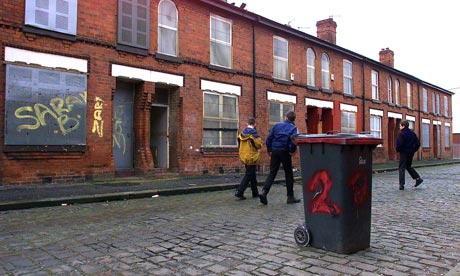Tackling poverty and building a culture of respect for human rights were twin peaks of the last government's agenda for social justice. It failed to achieve either; from 2004, many key indicators of social exclusion began sliding backwards and the Human Rights Act – New Labour's flagship piece of "fairness" legislation – is facing repeal. From a socioeconomic rights perspective, these failures are intrinsically linked. It is widely recognised now that poverty is about much more than low income – it reflects poor health and education, deprivation in knowledge and communication, and the inability to exercise political rights. Conversely, socioeconomic or "anti-poverty" rights – the right to health, housing or food – are increasingly recognised as a tool for empowering people to lift themselves out of poverty. So far, the UK has been content to acknowledge and even promote these rights in developing countries. In South Africa, for example, – where the constitution enshrines socioeconomic rights – a constitutional court ruling that the government's failure to provide free access to HIV drugs for pregnant women was a violation of their rights attracted widespread international praise. The use of socioeconomic rights is not confined to developing countries. In the US, communities have used human rights to challenge government policy on housing in post-hurricane New Orleans. And in Canada, an Ontario court found that the reduction of social assistance benefits by more than 20% violated the rights of welfare recipients not to fall below the standard necessary for maintaining their personal security. But in the UK, there remains deep suspicion. Socioeconomic rights are regarded by many lawyers and politicians as human rights gone too far, presenting the threat of the unjustifiable interference of the judiciary in the executive decisions of a government constrained – now more than ever – by finite resources. This is not to say that such rights have had no application here. The new Equality Act requires public authorities to consider socioeconomic disadvantage in the services they provide – the much maligned "socialism in one clause" bill, which is a significant step towards further recognition of these rights. The Human Rights Act has also been used to some extent to secure dignity in accessing public services. For example, a woman with severe disabilities successfully claimed against a London council that her two-year confinement to a single room with no access to a toilet was a violation of the right to a private life. But this act was not really designed to deal with poverty. In recognition of this, the much-respected Joint Committee on Human Rights recommended in 2008 that a new UK bill of rights should include the rights to health, education, housing and an adequate standard of living. The committee countered scepticism surrounding the idea that the courts would become embroiled in the distribution of resources by suggesting that the judiciary hold the government accountable to its socioeconomic obligations, rather than making the rights enforceable by individuals. This issue is likely to become more contentious, not less. No government, forced to make swingeing public spending cuts, wants to be held accountable for its decisions through socioeconomic rights litigation in the courts. On the other hand – as Alice Donald and Elizabeth Mottershaw, leading academics on socioeconomic rights – said on Friday at a conference in Salford – poverty isolates people from effective means of enforcing their rights. There is little point addressing one without the other. But it takes a brave politician to admit it.
Monday, 7 June 2010
Posted by
Britannia Radio
at
22:01
![]()






















